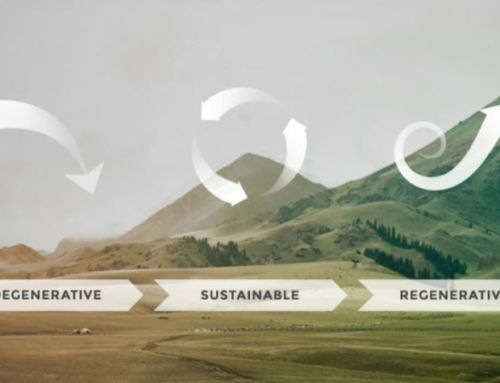Does responsible investment pay off? Well, this is what quite a few of us would like to know. This has also been the topic of my interviews with more than ten different investment experts, ranging from pension funds to private equity investors and the UNPRI. A big thanks to all of you who dedicated your time for this. I appreciate it very much!
These interviews are part of my diploma work for my studies on responsible business at the Aalto Executive Education. My work is aimed at showing the financial profitability and other benefits of a responsible business.
Does responsible investment pay off?
There is a lot of research on responsible investment. But, it is of course very difficult, if not impossible, to present 100% hard evidence of profitability. So many factors have an impact on a company’s business, not to mention a whole investment portfolio of several companies.
However, what was interesting in my discussions with the investment experts is that they share the belief that investing responsibly reflects positively on proceeds. It is an important tool in value creation. It seems that the longer you’ve been in the business, the more certain you are that there is a positive correlation between responsibility and a good investment. Some people say that their long experience has shown clearly that stressing responsibility in investments pays off.
positively on proceeds. It is an important tool in value creation. It seems that the longer you’ve been in the business, the more certain you are that there is a positive correlation between responsibility and a good investment. Some people say that their long experience has shown clearly that stressing responsibility in investments pays off.
Responsible investment a must, but also a good value creator
Different investors naturally look at this in different ways. A private equity investor has a lot of control in the portfolio company, but the term of ownership is typically pretty short. On the other extreme we have the pension funds where a quarter is 25 years. Such an investor has also much less control over the company’s actions as it has an enormous number of companies in the portfolio and the share of ownership is smaller. Traditional asset managers are sometimes specifically instructed by the client. The investment horizons can be both extremely short, very long-term and everything in between. But for all of them, responsible investment is becoming a must – the licence to operate as an investor. In addition, it becomes all the more evident that it is also good for the investor moneywise.
Some research
I’ll present some examples of research in this field. Maybe the most exhaustive study is this “meta study” done by Gunnar Friede, Timo Busch and Alexander Bassen and presented in the Journal of Sustainable Finance and Investment in 2015. The study combines the findings of about 2,200 individual studies. So it allows for some generalizable statements on the relation between environmental, social, and governance (ESG) criteria and corporate financial performance (CFP). The results of the study show that the business case for ESG investing is empirically very well founded. Roughly 90% of the studies examined find a nonnegative ESG–CFP relation, and the large majority of studies reports positive findings. Furthermore, the positive ESG impact on CFP appears stable over time. The authors conclude that the business case for ESG investing is empirically well founded and investing in ESG pays financially.
This article from MSCI is very interesting. It says that fund managers with the highest ESG scores gathered the most assets. According to the MSCI study, “there is a clear link between the Responsible Investment key issue score for a given manager and the growth of its assets under management over a three year period”.
Be good to the planet and to people
This article talks about the huge business opportunities that going green can provide. And this article notes that if investors are good to the planet and to people, they also end up, on average, benefiting themselves. Funds which observe ESG standards in their strategies tend to outperform those that don’t by a significant margin. The article also presents some interesting comparisons of various indexes used in the market.
Here is an article on the attractiveness of green bonds (article unfortunately only in Finnish). In this case, for example, the interest paid for the bond is lower than normally. Further, it is noted that green bonds are typically more transparent and the risk level is lower.
A few tips from an outsider?
I’m no investment expert, but I do have some views on what seems to be essential when aiming for the best possible upside from investing responsibly. And if done wrong, you may end up with a huge pile of reports and bureaucratic tick the box forms without getting any benefit from all the work put into the exercise.
The two aspects of responsible business
An investment in a company having a business that “changes the world” may not yet be enough. For responsibility to be truly convincing, the company also needs to run its operations and all functions responsibly. To name an example, a clean tech company should also take appropriate care of its personnel and other stakeholders. A world-saving mission is not sufficiently credible, if the company does not properly consider its stakeholders and the society too.
On the other hand, we have companies that just “fix the basic company functions”, but the business goes on as usual. Then it may miss out on a big opportunity to make good business out of responsibility and sustainability. Having reviewed quite a few companies from this aspect, I see that the big money is where both is combined. First, responsibility is the business and second, the company is managed responsibly.
The role of company management and good leadership
The role of the management is crucial. If the top management of the company does not have the right mindset, the company is probably not truly responsible. Then it may not grasp the full potential that is out there. Many of whom I’ve spoken to say that they can immediately  recognize, if the top management’s talk about responsibility is authentic. It’s easy to notice if the CEO and the CFO repeat ”rehearsed” phrases as a trendy talk because “everyone speaks about responsible business”. This is quite my experience too.
recognize, if the top management’s talk about responsibility is authentic. It’s easy to notice if the CEO and the CFO repeat ”rehearsed” phrases as a trendy talk because “everyone speaks about responsible business”. This is quite my experience too.
To be able to fully benefit from the opportunities offered by a responsible business, the top management must have internalised the true essence of responsibility. It’s good business, but you don’t do it because of the benefits, but because it’s right. Otherwise, you’re utilitarian and take the risk that corporate responsibility becomes either fragmentary or superficial, or both. And good leadership is one important aspect of a responsible business.
Use the power of money to make an impact in the world
As an investor, you have the power of money. You can shape the world by being proactive and visionary. Even with 4,000 companies in your portfolio, you can impact on the actions of the company, if you want to. It may take time and be very challenging, but the more investors use their power, the bigger the pressure on the companies to take it into account.
You can also guide your client. You don’t have to sit there and wait for the clients to wake up to the benefits of responsible investment. You can actively tell them what it’s all about.
As Al Gore says in this video, we’ve had good progress in the past years, but there is still a long way to go in the transformation to a more sustainable form of capitalism.
Good for society – good for investment
What is good for the society is good for investment. In the long run, those companies that can rise to the level of a truly responsible company and make good business out of a societal purpose, will be the ones to provide the long-term profits with less risk than their peers.
Also, the whole investment community will benefit from a healthier global financial system. But this will require many more to commit to the right standards. In the words of UNPRI:
“We believe that an economically efficient, sustainable global financial system is a necessity for long-term value creation. Such a system will reward long-term, responsible investment and benefit the environment and society as a whole.”
My interviews will be compiled in my diploma work later this year. My intention is to publish the report in the beginning of next year. Feel free to contact me, if you’re interested to know more.






